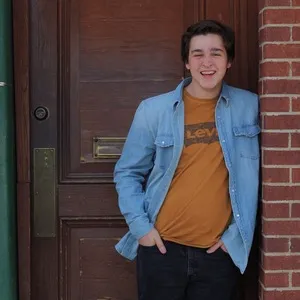It’s no secret that the former Starbucks CEO, Howard Schultz has long had presidential ambitions. When he left the position 9 months ago as leader of one of the most recognizable coffee brands on the globe, Schultz began to set himself up for a future shot at the White House. From making more public political comments and criticisms to releasing his new book, “From the Ground Up: A Journey to Reimagine the Promise of America” earlier this week, the businessman appears to be making all the right steps. However, political pundits on all sides of the aisle are criticizing his ambitions of Presidential candidacy.
Schultz has not yet formally announced his Presidential bid, but this past Sunday he declared he was “seriously considering” running for President as a “centrist independent” via a tweet that instantly gained plenty of negative traction. In fact, the childhood breakfast treats Pop-Tarts stepped into the spotlight to seemingly mock Schultz tweeting “Hello I am considering a presidential run in 2020” – which gained eight times as many retweets.
Just hours after the tweet, the businessman appeared on CBS’ 60 Minutes having strong words for both parties pointing out the unrealistic proposal of free universal healthcare and warning that the massive national deficit is “a reckless failure of [both parties’] constitutional responsibility.” This isn’t the first time Schultz has spoken out to warn against the dangers of the growing national debt, however. Last June he proclaimed that the $21 trillion debt is the “greatest threat domestically to the country.”
But what qualifies the former leader of Starbucks to become the leader of the free world? It is true that under his direction, Starbucks became known for having some of the best benefits in the restaurant industry. Offering paid sick leave, a rarity in the industry, maintaining the best parental leave policy of any major chain, allowing part-time employees to qualify for health insurance, and even giving free tuition to Arizona State University for those who don’t already have a four-year degree.
Not only did Schultz raise the bar for employee benefits in the restaurant industry, under his reign – from 1987 to 2000 and again from 2008 to 2017 – Starbucks came out of the shadows as a Seattle staple to a worldwide superpower. Since 1992, when the company went public, to the time that the former CEO stepped down, Starbucks stock rose 21,000 percent.
So what’s the big deal?
Running on the idea of uniting a broken America seems like a solid platform, but his previous efforts in this area proved to be too aspirational – even for a coffee chain. In 2015, the company launched the “Race together” campaign which proved to be anything but uniting. The intent was for baristas to write messages on customers cups to spark a much-needed conversation about race, but nearly everyone saw it as an ill-informed approach to make it seem that the long record of institutional racism that has plagued America could be fixed simply with a cup of coffee. Two years later, Starbucks found itself in a PR crisis after a store manager called the police on two young black men for no good reason. And initiatives such as promoting more inclusive holiday cups and hiring 10,000 refugees garnered more distasteful impressions with the conservative base.
Aside from Schultz’s polarizing past, one of the largest targets on his back is because of the fact that he plans of running a third-party candidacy. Many liberals fear that he will steal votes from the Democratic candidate and ultimately hand the election over to Donald Trump. Back in 1992 for example, Ross Perot ran as an independent candidate and is often accredited for aiding Bill Clinton in defeating sitting President George H. W. Bush.
However, not everyone out there fears the same outcomes of a third-party candidate. In fact, in a commentary piece on Fortune.com, writer Alan Murray goes a step beyond welcoming Schultz to the race but states it would be a good idea. Not because we should have another billionaire businessperson in the White House and despite his controversial initiatives as CEO, but because “someone needs to challenge the two-party stranglehold on American politics.” Murray follows that by stating “America’s biggest business competitiveness problem is its broken political system” and “the two parties act like a classic duopoly, serving their own needs but not those of the country.”
In the end, only time will tell whether or not Schultz’s presidential ambitions will transform from tweet to reality. As more candidates enter the 2020 race for the White House, it remains unclear if the businessman’s centrist message will resonate with Americans loud enough to outperform the other hopefuls in a field that is predicted to be the one of the largest and most diverse in American history. So stay informed, stay engaged, and stay active because there could be a chance that this coffee aficionado could become a serious contender in this whirlwind of a political scene.


